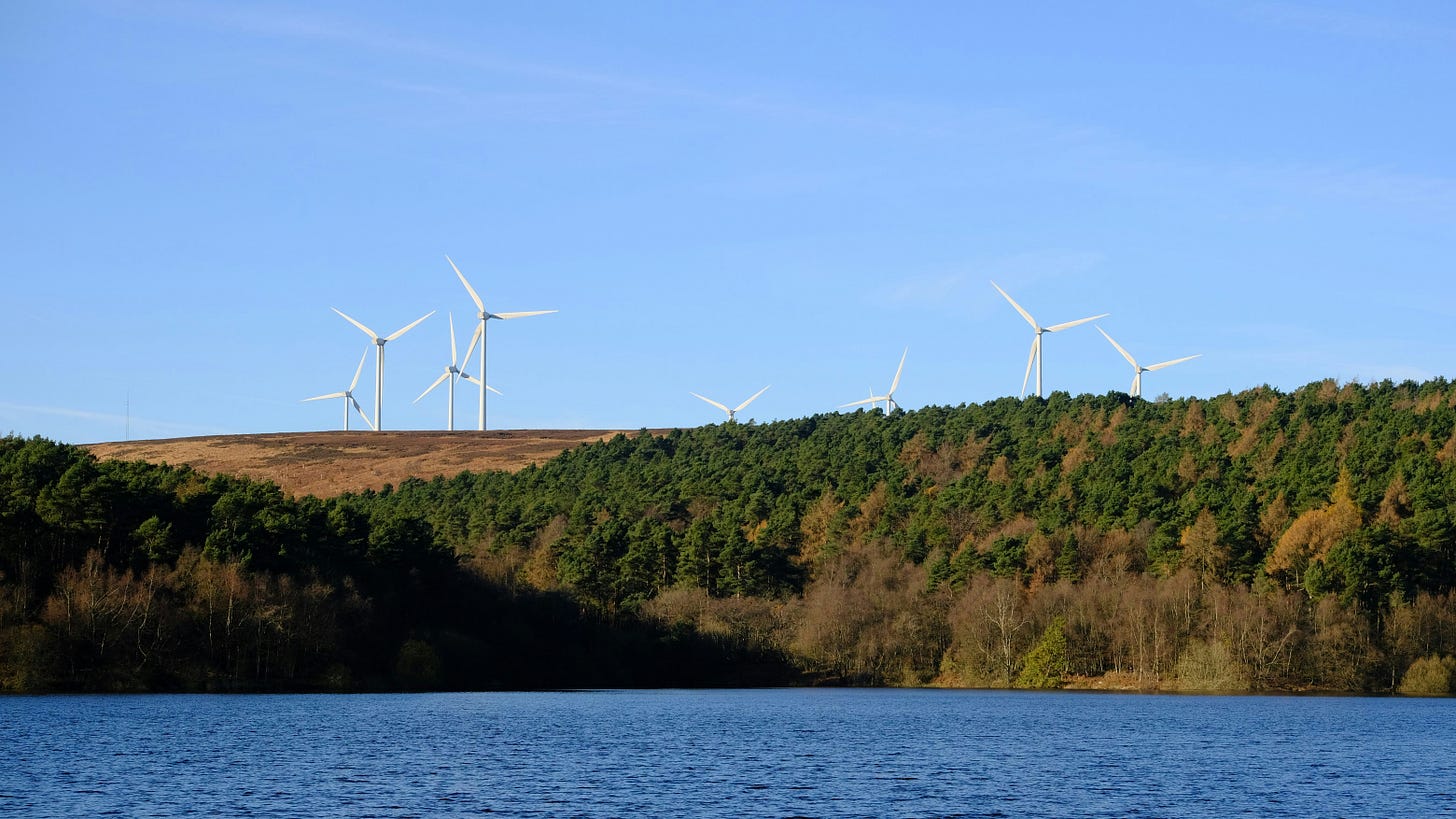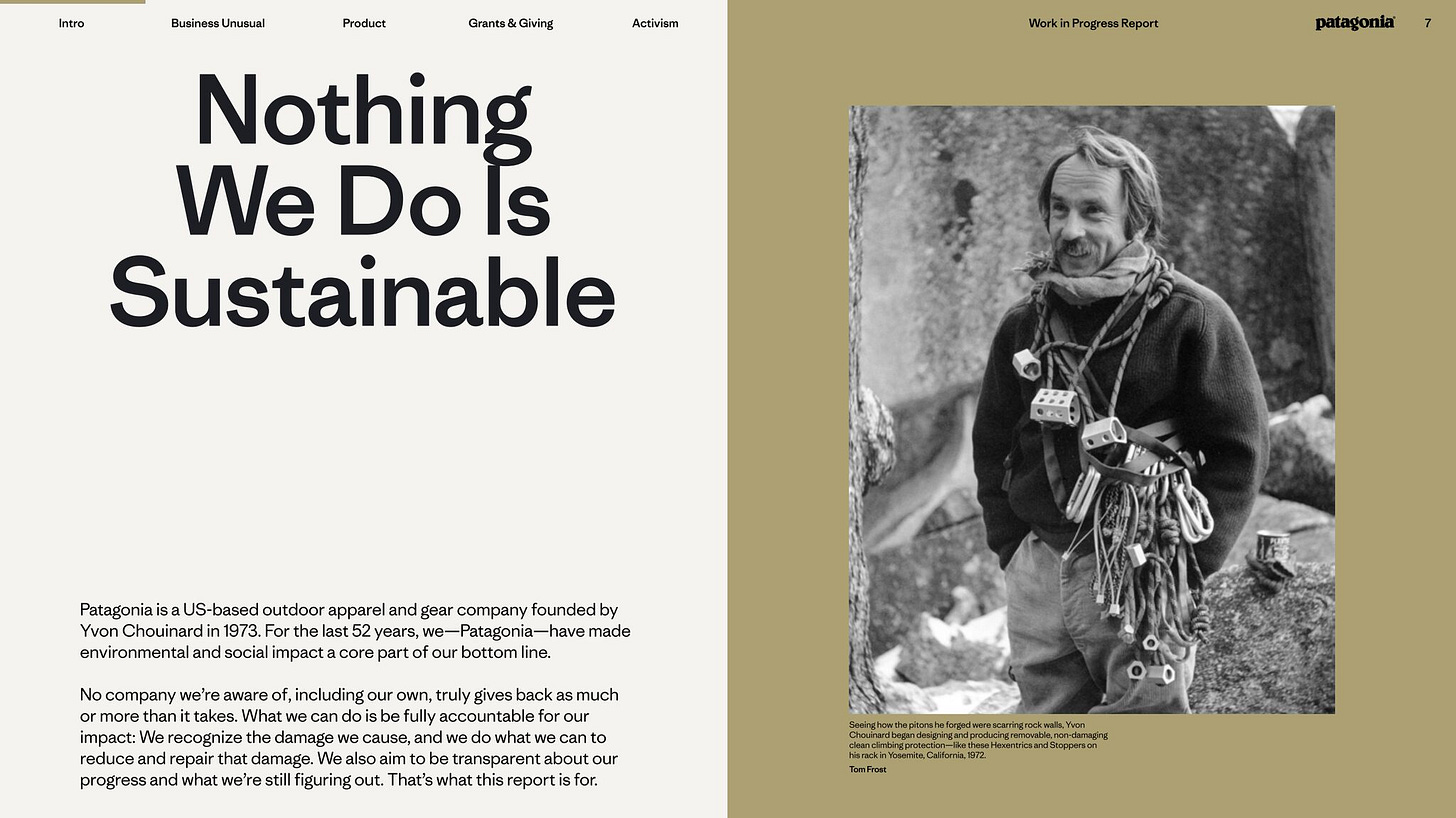🌱 The Grumpy Optimists #146
The good, the surprising and the thought-provoking in climate this week
Happy Monday. 👋
I’m back in the UK and already missing the blue skies and warm weather of Tokyo on this cold and dark Sunday evening. But, I’m back and ready to take the learnings and inspiration back to the office tomorrow.
Quick plug. I’m hosting a webinar on Tuesday at 2pm GMT on building a business case for sustainability. Whether you work in sustainability or you’re trying to get your company to act, I’ll walk through how to get management on board. You can sign up here. It will be fun and useful, I promise.
For now, let’s dig in to some positive climate news before I fall asleep at 7pm with jet lag
👀 News to make you feel good this week
🧊 Ancient microbes frozen for 40,000 years thaw, revive and devour carbon. Scientists have discovered ancient microbes that revived after tens of thousands of years and immediately began consuming carbon. Their behaviour challenges assumptions about carbon cycles in thawing permafrost and suggests the Arctic could respond in more complex ways than expected. A surprising reminder that climate feedback loops are rarely simple.
🇩🇰 Denmark announces one of the world’s most ambitious climate targets. Denmark has unveiled new climate goals that far exceed the pace of wider EU action, committing to deeper emissions cuts and major investment in clean industry. The government argues that early leadership will strengthen its competitiveness as global markets decarbonise. It is a rare example of a country choosing to accelerate, not delay.
♻️ Designing the reuse economy: how architects can build supply chains, not just buildings. Architects are shifting from designing single-use buildings to thinking in circular systems, building networks for reclaimed materials rather than relying on demolition. This approach could dramatically reduce construction emissions while reshaping supply chains around reuse. It’s a practical route to embedding circularity in the built environment.
💨 UK wind farms generate record levels of power. The UK generated a record amount of wind power in November, driving fossil-fuel use to unusually low levels. Strong offshore and onshore output showed how resilient the country’s renewable infrastructure has become. These records are happening more frequently as build-out continues.
🏙️ Mayors coordinate climate action ahead of UN summit. More than 300 mayors met in Rio to coordinate practical plans for extreme-heat response, green infrastructure and local adaptation. The group aims to push national governments by showing what meaningful action looks like on the ground. Cities continue to act even when national politics slow things down.
💭 My thoughts: when I was in Tokyo, one of the meetings I had was with our client, none other than Tokyo Government. It made me realise the scale that cities can have to drive decarbonisation, both in their own assets and the wider ecosystem.
🔥 Essex couple slash heating bills with a data-centre in their shed. A couple are piloting the UK’s first “HeatHub”, a tiny data centre that warms their home using heat from 500 mini-computers. The system, developed by Thermify and UK Power Networks’ SHIELD project, captures waste heat from data processing and feeds it into their hot water and heating. Their monthly bills have dropped from £375 to around £40. The household also uses solar panels and a battery, further lowering costs. The HeatHub units could eventually form a distributed low-carbon data network.
💭 My thoughts. A neat example of using waste heat that already exists instead of burning more gas. If this scaled, small distributed data centres could double as hyper-local heating infrastructure. It’s the kind of practical, modular climate solution that feels surprisingly underrated and shows that the transition to net zero doesn’t always require building vast new systems from scratch.
🤔 News to make you think
⛰️ ”Nothing we do is sustainable”. Patagonia, a company that is legally structured to serve the planet - all profits from the company now go to a non-profit called the Holdfast Collective to fight climate change and protect nature - has come out and taken aim at it’s own business model for being unsustainable.
Their emissions are up, they use labour that does not pay the living wage and they are heavily reliant on synthetic materials. It does however show clear transparency. The company is also using its business, voice, community to support grassroots movements, and its profits to fund environmental efforts via its new owner structure.
It’s an interesting read, I love the transparency but it does also show the challenges of decarbonising in a high-consumption world.
If you’re a consumer of their products, the takeaway is clear: a purchase from Patagonia may support mission-driven business, but that does not mean zero impact. The report helps set realistic expectations and shows the challenges all clothing businesses face.
That’s all from me this week folks. I’ve done a whole lot of sleeping this weekend and I’m looking forward to getting stuck back in to some climate work again this week before I turn 29. Crazy. Maybe I’ll take the day off for it next week, who knows.
My music recommendation is Peace, Good Jeans. A throwback to being a 16 year old indie boy again.
George, the Grumpy Optimist 💚




